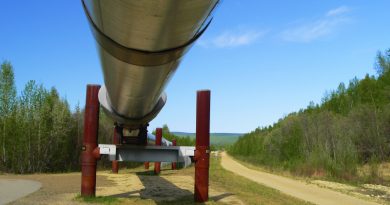Feds backtrack on characterizing northern military spending as new

Department now says it switched from one type of accounting to another
Funding characterized by the federal government as a new investment into a network of northern military hubs is, in fact, not new money.
National Defence Minister Bill Blair was in Iqaluit last week to announce the federal government was investing $2.67 billion into a network of northern operational support hubs over 20 years and that the first of them would be in Iqaluit, Yellowknife and Inuvik, N.W.T.
It was a shift from what was announced last year, when the federal government — and its renewed defence policy — said $218 million would be invested into the network.
Asked by a reporter during the news conference last Thursday why the federal government was increasing the funding for the network ten-fold, Blair said the decision stemmed from conversations being had with northern partners, the Canadian Armed Forces, and with Canadians more broadly.
In an interview with Cabin Radio, Blair also characterized the money as a “substantially increased investment.”
Blair did not say during the news conference — though a department spokesperson later did via email to CBC News — that the government had changed accounting methods it was using to talk about the hubs, but the $2.67 billion itself had always been budgeted.
Laurent de Casanove, a spokesperson for Blair, said the $2.67 billion figure “more accurately captures the broader financial commitment being made to strengthen Arctic infrastructure and operations.”
Asked why the minister characterized the money as a new investment into defence, de Casanove said Blair had been “emphasizing the scale of investment being made in the North and the Arctic.”
The nitty gritty
The accounting method changed from an accrual budget to a cash-basis budget.
A cash-basis budget reflects money that is planned to be spent.
An accrual budget, on the other hand, reflects expenses and revenues as they actually happen — not when they are paid for — and shows depreciation of assets over time. It’s the accounting system the federal government has used since 2003, according to the Library of Parliament.
Asked whether the money announced on Thursday was new or not, Kened Sadiku, a spokesperson for the Department of National Defence, pointed to a cash-basis budget that shows the federal government had planned already last year to spend $2.67 billion on the network over 20 years.
It’s not the same type of budget the department used to announce the hubs a year ago. Sadiku said the $218 million figure the department used in 2024 is from an accrual budget. The numbers are different because infrastructure the government wants to build is expected to last longer — and therefore will experience wear and tear over a longer time period — than the 20-year time frame.
Related stories from around the North:
Canada: Feds boost spending on northern military hubs to $2.67B, CBC News
Finland: Finnish Defence Minister tells party leaders shrinking fighter fleet would be “irresponsible”, Yle News
Greenland: Greenlanders vote in election dominated by Trump’s control pledge, Reuters
Iceland: Iceland’s FM announces defence review, calls revamped security policy ‘urgent’, Eye on the Arctic
Norway: NATO’s Arctic dilemma: Two visions of the Arctic collide as NATO and Russia flex muscles, Eye on the Arctic special report
Russia: Russian gov promises new weapons while approval ratings slide, The Independent Barents Observer
Sweden: Faced with Trump’s wavering support for NATO, Nordic nations stick together, The Independent Barents Observer
United States: U.S. experts call for ‘vigilance’ on Russian military buildup in Arctic, Alaska Public Media



